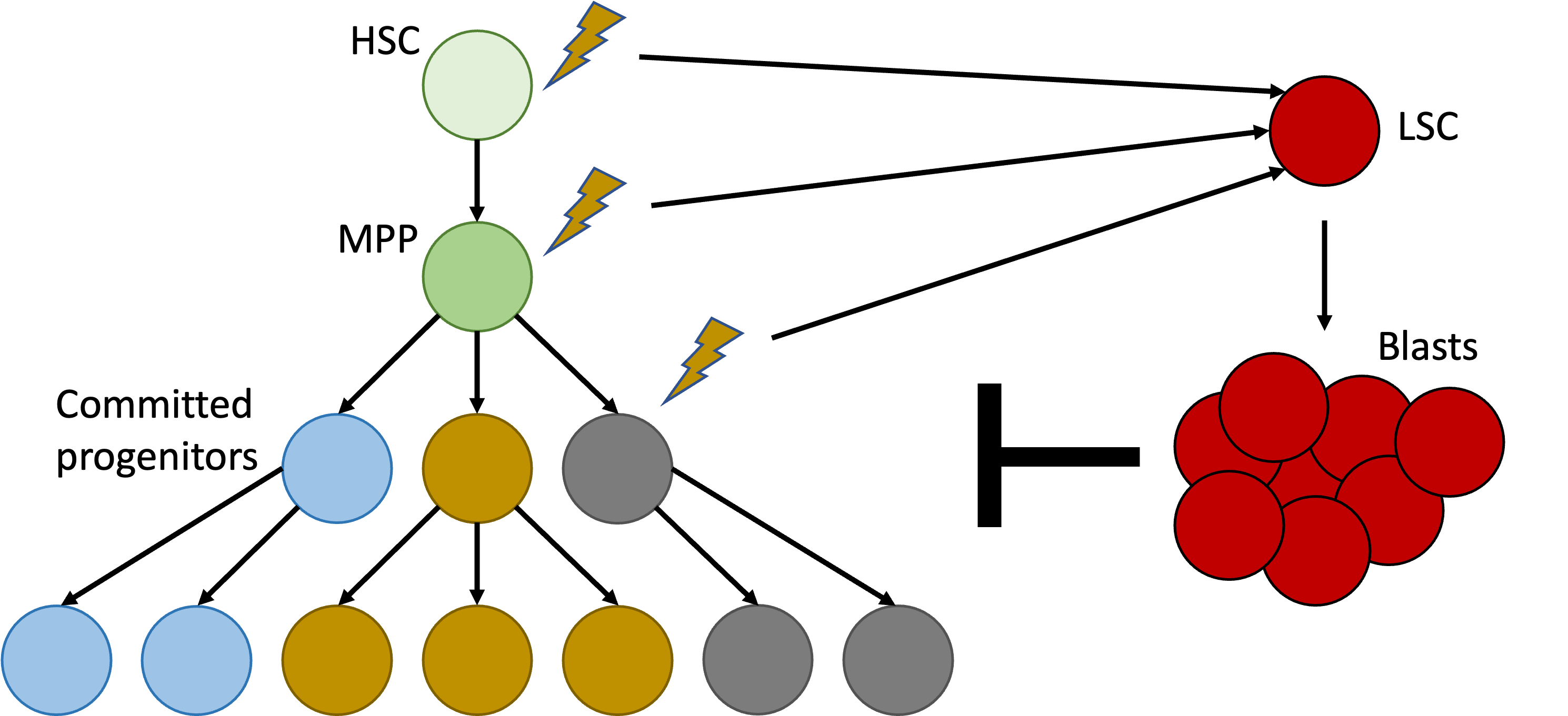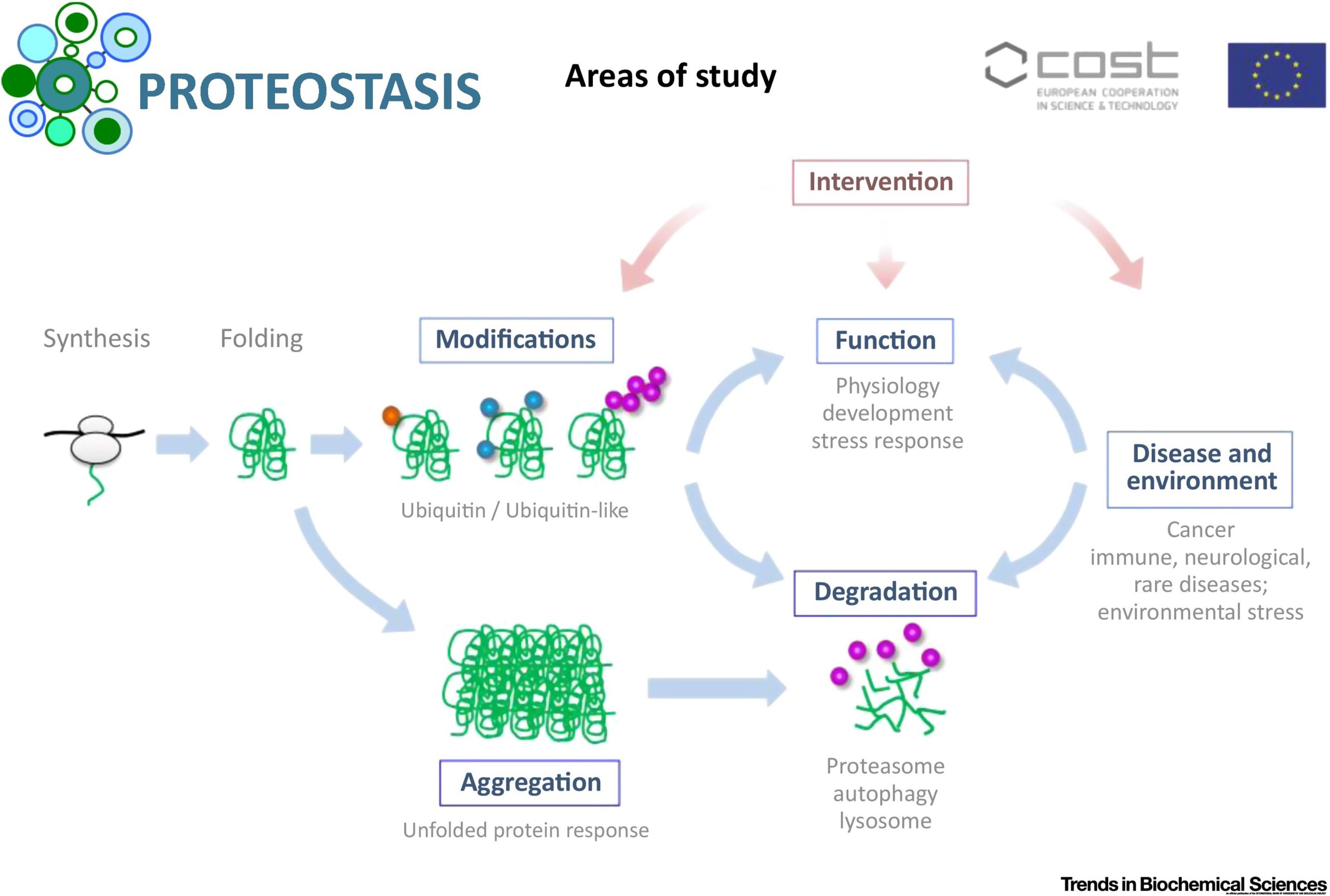Haematpoiesis & Leukaemia
Our research focuses on the role of protein homeostasis – so called “Proteostasis” – in healthy and malignant stem cell development. The predominant focus of the lab is the haematopoietic (blood) system and cancerous transformation to acute myeloid leukaemia (AML).

The haematopoietc system (left) is a hierarchal system with haematopoietic stem cells (HSCs) at the top giving rise to multipotent progenitors (MPPs) and committed progenitors. HSCs and MPPs are required to self-renew to maintain this system for life-long health. Upon the accumulation of mutations the system can transform to cancers such as acute myeloid leukaemia (AML; red, right). AML is a hierarchical disorder with rare, drug resistant and highly potent leukaemic stem cells (LSCs) maintain cancerous blast which themselves block the healthy system.
Proteostasis
The study of the transcriptome in the last two decades has significantly progressed our understanding of HSC biology, but it leaves a wide gap in our knowledge of the functional state of the proteome in HSCs, and indeed proteins are the predominant effectors of cells and generally the first targets of small molecules aimed at directing their biology. There is little correlation between the transcriptome and the proteome in young or old mouse HSCs and recent landmark studies have demonstrated that the proteome is a better predictor of drug response and overall survival outcome in haematological malignancies, but little is known about the functional state of the proteome in HSCs from humans. With a deep understanding of the proteome, we can provide a better understanding of fundamental stem cell biology, develop new and more effective models to replace animals in stem cell biology research, and begin to improve regenerative medicine approaches with significant clinical impact.
